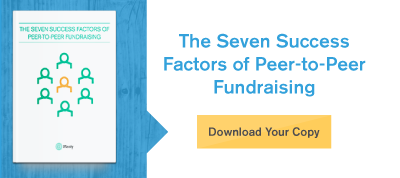7 Tips For Being A Mindful Leader When Your Plate Is Overflowing
Nonprofit management is not for the faint of heart. It's a field in which constantly shifting priorities meet challenging budgets and colliding deadlines. Your team might be motivated, dedicated, and all around effective, but it is easy for the tides to shift as workloads increase and your available time diminishes. Devoting the necessary time to be a great leader, while developing a productive atmosphere and ensuring that everyone is working towards your joint vision isn’t easy, but it is a critical component of your team’s success. Fortunately there are practices you can put in place today that will help you grow as a leader allowing you to better support your team. Below are seven tips for being a mindful and successful leader.
1. Have a Mindful Beginning
A great approach to being mindful is to begin your day with this concept in mind. Early morning meditation is a wonderful way to reduce anxiety and achieve this. Quoted in Harvard Health Publications, psychiatrist Dr. Elizabeth Hoge says that meditation can help treat anxiety. "People with anxiety have a problem dealing with distracting thoughts that have too much power. They can't distinguish between a problem-solving thought and a nagging worry that has no benefit." Try starting your day off with ten minutes of meditation to find focus. This concentration will allow you to bring your best self to work and your team, even when your plate is overflowing.

2. Be Productive
You know that overwhelming task, the one you’ve been putting off all week? According to Fast Company, you should "do the big shoulder-sagging stuff first." By working on the big worries first rather than reacting to many emails, you'll place your productivity and sanity on the priority list, so you can get more accomplished, and free up time and brainpower to support your team.
3. Choose Your Priorities Wisely
When you're overwhelmed, it's tempting to make a to-do list that's a few miles long and hope to get to all of it. The problem is that we don’t always get through our entire list, and when this happens we can become discouraged. So instead of creating an enormous list of tasks, develop a short one. According to the One Page CRM, "a long to-do list kills motivation." Choose a maximum of three medium-to-large priority tasks to complete in a single day. You'll feel more accomplished and focused. This is a great method to rollout to your entire team. As you assign tasks make sure to clearly state the priorities and be conscious of how long your team’s task list is getting.
4. Give Yourself Space
When your schedule is packed, giving yourself space seems counterintuitive. We often try cram as much in as possible to accommodate all of our own tasks as well as our team’s needs. However, mindful leadership isn't achieved by trying to do so much that we are constantly treading the metaphorical waters. Instead, we have to give ourselves room to think, to reflect, to brainstorm, and simply – to breathe.
Try building a schedule with this in mind. Schedule “space” throughout your week. Start with whatever amount of time feels doable, and eventually you will observe what amount of time is ideal to have open and when during the week you need it most. At Plenty we often say that the moment you feel like you have no time at all to focus on your wellbeing is exactly the moment you need to make it a priority.
5. Work in Focused Chunks
As you work on a task or dive into a new project, attempt to achieve a state of mental flow. What this means is that you turn off your inbox notifications, your phone, your iPad, your other iPad etc. and focus – even if it's just for 20 minutes. Much like creating space in your schedule, setting time aside to be focused and productive is equally important and beneficial.
Set office hours with your team to avoid interruptions or distractions. This allows you to focus on your work during your work time and your team during their office hour. It's amazing how much you can get accomplished when you focus solely on a single task. After that chunk of time passes, get up, walk around, and take a mental break to ready yourself for the next task.
 6. Embrace Your Natural Rhythm
6. Embrace Your Natural Rhythm
When is your brain at its best? Some people enjoy working long into the evening, while others are most alert in the morning. If you can, flex your hours and your tasks to work with your natural rhythm. If you know that concentration is difficult right after lunch, create space for small tasks at that time, and save the big chunks of focused work for a time when you are mentally focused. Taking an intentional pause can refocus your energy and attention. Your leadership will shine when you hold meetings or create key documents at a time when you have optimal mental focus.
7. Take a Vacation
Stressed out? Too much work? Taking a vacation may be the last thing on your mind. However, planning to take some time completely away from work can do wonders for your leadership. According to Entrepreneur Magazine, "Entrepreneurs are often celebrated for wearing multiple hats and logging numerous hours. But working without letup is a bad habit that can jeopardize business, health and the life you're supposedly working toward."
When you're a visionary organizer, the same applies to you. You're working constantly for a cause, but you must take time off as well. It relaxes you, lets you recharge, and allows you to return to your team renewed, motivated, and with a vision that's refocused.
When your plate is full, it is easy to fall into unproductive and unhealthy work habits. These habits eventually take a toll on you and often impact the entire team. Mindfulness practices will not only help you concentrate, they will also help you reconnect to your passions and mission.
Share this
You May Also Like
These Related Stories

Four Ways To Better Utilize Your Volunteers

6 Ways To Achieve Work-Life Balance



Comments (2)